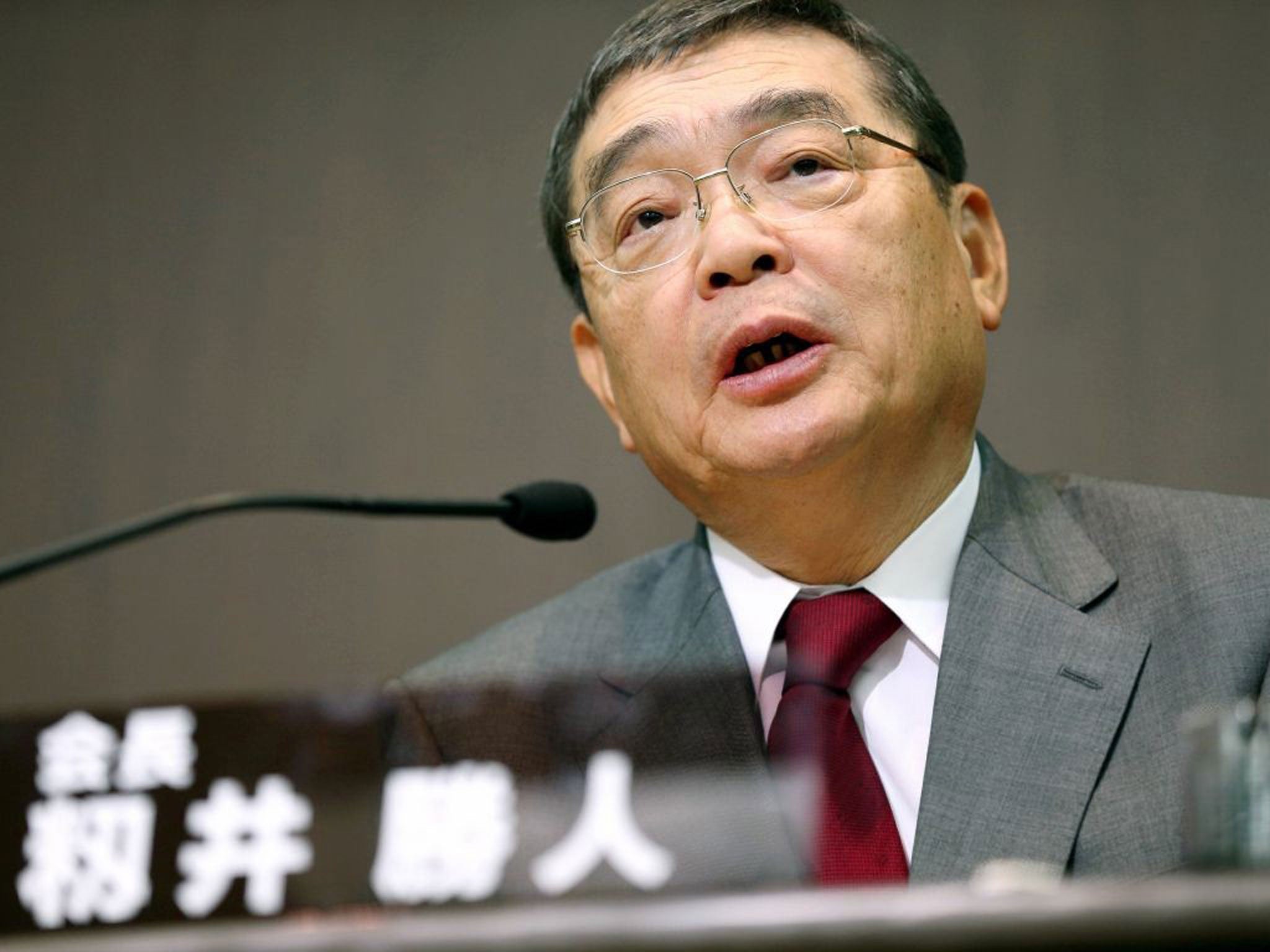Japanese broadcasting chairman apologises for comments defending WWII use of 'comfort women'
Chairman previously claimed use of 'comfort women' was 'common'

Japan's new public broadcasting chairman has expressed regret for comments describing the use of sex slaves as "common" during World War Two, in a press conference last week.
Katsuto Momii’s remarks, made during his first press conference as chairman of the publicly owned national corporation NHK, provoked criticism from South Korea and China - both victims of Japan’s militarism in the early twentieth century - and lead to widespread calls for his resignation.
The comments came at a particularly bad time for the Japanese prime minister Shinzo Abe, as he faces increasing tension over disputed territory with Japan and China.
An estimated 200,000 victims, known as ‘comfort women’, were abducted from their homes in Korea, China and the Philippines and forced into prostitution in frontline brothels across Asia between 1932 and 1945.
Mr Momii described Korean criticism of the women’s enslavement as “puzzling”, stating: “In the current moral climate the use of comfort women would be wrong. But it was a reality of those times.”
However, Mr Momii has subsequently acknowledged his remarks were "extremely inappropriate," and blamed his lack of broadcasting experience.
Prior to his climb-down, Mr Momii initially said he was speaking in a private capacity, only afterwards attempting to withdraw the remarks when journalists pointed out he was speaking during a press conference and as the chairman of a large, publicly funded company.
South Korea has demanded Japan admit it forced young women into slavery during the 35 year occupation of the Korean peninsula, as well as offering an official apology and compensation.
However, Japan maintains all compensation claims were settled when the countries normalised diplomatic ties in 1965.
Only in 1993 did Japan acknowledge the use of wartime sex slaves, issuing an official apology in the Kono Statement which successive governments have upheld.
But, perhaps indicating the changing mood of the government, in 2007 government minister Hakubun Shimomura called for an objective look at the Kono Statement, with Abe stating there was no proof the women involved were coerced.
Subscribe to Independent Premium to bookmark this article
Want to bookmark your favourite articles and stories to read or reference later? Start your Independent Premium subscription today.

Join our commenting forum
Join thought-provoking conversations, follow other Independent readers and see their replies